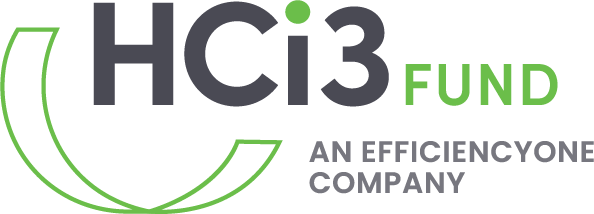
Funding Guide
National Programs
Green Municipal Fund
Green Municipal Fund (GMF) funds local sustainability projects that help municipalities adopt climate solutions faster. Funding can cover between 50 and 80 percent of your eligible project costs, and certain communities may be eligible for up to 100 percent of project costs.
-
Financing for construction or retrofit of new affordable housing projects that covers 20% of eligible project costs through a combination of 50% grant and 50% loan. Municipal governments, municipal corporations and non-profits are eligible to apply.
Rolling intake resumes April 2026
Funding for capital projects and pilots in closed, and intake for plans and studies is paused until April 2026. -
This funding helps Canadian cities and communities produce and utilize local sources of energy and generate additional valuable products such as digestate and fertilizers, ultimately resulting in a net GHG emission reduction. Canadian municipal governments, and municipal partners are eligible.
Rolling Intake
-
Funding to support improving the performance of municipal buildings to lower operating and maintenance costs, reduce emissions, and free up budget for essential services like housing, transit and infrastructure.
Rolling Intake
-
Combined loan and grant funding to support municipalities in constructing innovative infrastructure that has the potential to result in a significant contribution to net-zero. Canadian municipal governments, and municipal partners are eligible.
Rolling Intake
-
Funding to support municipalities and their partners in constructing, commissioning and rapidly deploying a successful implementation of a low-carbon community energy system.
Rolling Intake
-
GMF’s Local Leadership for Climate Adaptation (LLCA) initiative provides funding and skills development support to local governments to adapt and build long-term resiliency to the impacts of climate change. By 2031, this $530M initiative will fund more than 1,400 municipal activities.
Implementation project deadline October 9, 2025
Next round of funding will be available Spring 2026Feasibility study deadline October 28, 2025
Next round of funding will be available Spring 2026
RBC Foundation Community Investments
RBC’s Community Investments program funds Canadian organizations focused on advancing climate solutions and supporting the transition to a net-zero economy, equipping people with skills for a thriving future, and driving equitable opportunities for prosperity. Registered charities, non- profits, and qualified donees across Canada can apply year-round for funding.
-
The RBC Foundation Community Infrastructure Fund provides support for retrofits, repairs or upgrades to existing public community buildings, as well as construction of new community spaces across Canada. Funding amounts range between $25,000 and $2.5 million, payable over a maximum of five years.
Applications open in Fall 2025
Canadian Urban Institute
The Canadian Urban Institute is a national charity on a mission to address urgent social, economic, environmental, and cultural challenges while supporting long-term resilience, vibrancy, and prosperity in communities across Canada.
-
The Climate Ready Infrastructure Service (CRIS) matches local governments and communities with leading climate experts to provide technical solutions for planning and retrofitting infrastructure projects. Indigenous Governing Bodies, First Nation, Inuit or Metis government or authorities, and local governments from across Canada with populations of under or around 30, 000 inhabitants are eligible.
Rolling intake - Currently accepting projects
Nova Scotia Provincial Programs
Pollution Probe
Pollution Probe is a Canadian charitable environmental organization founded by University of Toronto students and professors. Pollution Probe pursues environmental gains by working productively with governments, industry and the public, with a steadfast commitment to Clean Air, Clean Water, and a Healthy Planet.
-
Pollution Probe’s CHARGED Program is supporting the Government of Canada’s commitment to having Zero Emission Vehicles (ZEVs) comprise 50% of new passenger vehicle sales by 2030, and 100% by 2035. CHARGED provides funding to applicants to support the purchase and installation of electric vehicle (EV) charging infrastructure. Legal entities validly incorporated or registered in Canada, including not-for-profit and for-profit organizations are eligible for this program.
Funding available in Nova Scotia and Newfoundland & Labrador until March 31, 2026
Government of Nova Scotia
-
The Community Solar Program helps community groups and organizations set up solar gardens on their properties and sell subscriptions to the electricity they produce from the solar gardens. You can subscribe to a community solar garden if you’re:
a current Nova Scotia Power customer (in good standing with Nova Scotia Power)
not participating in any other solar programs with Nova Scotia Power (like net-metering)
not already a subscriber in another community solar garden (you can only subscribe to 1 community solar garden)
Application Intake and Evaluations Resume on September 2, 2025
-
Property Assessed Clean Energy (PACE) programs are a way to support homeowners finance energy efficiency upgrades and cleaner energy solutions for their homes. Municipalities can create their own PACE program, or join an existing turn-key program such as Clean Energy Financing or SwitchPACE.
Continuous intake for homeowners and municipalities
Other Funding Programs
Indigenous Clean Energy Network
Indigenous Clean Energy promotes Indigenous leadership in Canada’s energy future through meaningful collaboration with energy companies, utilities, governments, development firms, clean tech innovators, academia, and capital markets.
-
This funding is for electric vehicle charger installation and is open to all Indigenous communities or organizations, and will cover 75% of project costs. For a level 2 charger the maximum is $7,500 per connector, and for a level 3 charger, the range is between $22,500-99,999.
Funding Closes September 1, 2025
Funding will close once all available funding is allocated or by September 1, 2025, whichever occurs sooner.
